Editorial Board
Daniel Aberdam, PhD, INSERM Unit U898, France, INSERTECH, Israel
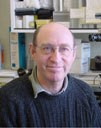 France, Paris - Daniel Aberdam completed his first degrees at Pierre and Marie Curie University (Paris, France) and his PhD at the Weizmann Institute (Israël) on the oncogenic potential of homeotic genes, under the supervision of Professor Leo Sachs. He currently holds the position of INSERM Director of Research and Long Term Visiting Professor of the Israeli Institute of Technology (Technion). He is Director of the INSERM Unit U898 (Nice, France) and Director of INSERTECH (Technion). His scientific interests focus on epithelial gene regulation and skin physiopathology. Lately, his group developed strategies to recapitulate in vitro embryonic skin development derived from embryonic stem cell lines. The current projects developed by his teams are centered around the function and regulation of p63, a p53-related epithelial master gene and the use of pluripotent stem cells as cellular models and for cell and gene therapies.
France, Paris - Daniel Aberdam completed his first degrees at Pierre and Marie Curie University (Paris, France) and his PhD at the Weizmann Institute (Israël) on the oncogenic potential of homeotic genes, under the supervision of Professor Leo Sachs. He currently holds the position of INSERM Director of Research and Long Term Visiting Professor of the Israeli Institute of Technology (Technion). He is Director of the INSERM Unit U898 (Nice, France) and Director of INSERTECH (Technion). His scientific interests focus on epithelial gene regulation and skin physiopathology. Lately, his group developed strategies to recapitulate in vitro embryonic skin development derived from embryonic stem cell lines. The current projects developed by his teams are centered around the function and regulation of p63, a p53-related epithelial master gene and the use of pluripotent stem cells as cellular models and for cell and gene therapies.
KEYWORDS: stem cells; development; genetics; epithelial cancers; genotoxic stress
El Bachir Affar, MSc, PhD, Maisonneuve-Rosemont Hospital, Canada

Montréal - Canada, El Bachir Affar is a principal investigator at the Maisonneuve-Rosemont Hospital, where he leads the Cellular Signaling and Cancer Research unit. He holds a position as a full professor in the Department of Medicine and an accredited professor in the Department of Biochemistry and Molecular Medicine at the University of Montréal. His academic career began with a B.Sc. equivalent in Animal Biology from University Hassan II in Morocco, followed by a M.Sc. degree equivalent in Cell Biology, Physiology, and Toxicology from University Paris VII, France. He then pursued a Ph.D. in Physiology-Endocrinology at Laval University in Canada. His postdoctoral studies included work at Harvard Medical School, where he furthered his expertise in cell signaling in the context of chromatin biology and co-discovered the shRNA approach. Dr. Affar's current research is primarily focused on understanding the mechanisms of cellular signaling through ubiquitination and deubiquitination and the molecular basis of cancer, with a special emphasis on the BAP1 gene, known for its tumor suppressor functions in various cancer types. His approach utilizes advanced techniques in biochemistry, genomics and proteomics. His significant contributions to understanding the ubiquitin system have been recognized with several awards and honors.
Keywords: ubiquitin signaling, deubiquitination, chromatin, epigenetics, apoptosis, liquid-liquid phase separation.
Ivano Amelio, PhD, University of Konstanz, Germany
 Prof. Dr. Ivano Amelio holds the Carl Zeiss Endowed Chair for Systems Toxicology at the University of Konstanz, Germany. He received his training at the MRC Toxicology Unit of the University of Cambridge, where he was first awarded (in 2011) a Career Developmental Postdoctoral Fellowship and was later promoted (in 2015) to a Senior Scientist position. Originally, he received his PhD in Biochemistry and Molecular Biology (2011) from the University of Rome TorVergata (Italy). In 2020 Ivano was awarded the prestigious AIRC Start-Up program, which led him to a tenure-track professorship with a joint appointment between the TOR Centre of Excellence in Rome (Italy) and University of Nottingham (UK) until 2022, when he joined the University of Konstanz.
Prof. Dr. Ivano Amelio holds the Carl Zeiss Endowed Chair for Systems Toxicology at the University of Konstanz, Germany. He received his training at the MRC Toxicology Unit of the University of Cambridge, where he was first awarded (in 2011) a Career Developmental Postdoctoral Fellowship and was later promoted (in 2015) to a Senior Scientist position. Originally, he received his PhD in Biochemistry and Molecular Biology (2011) from the University of Rome TorVergata (Italy). In 2020 Ivano was awarded the prestigious AIRC Start-Up program, which led him to a tenure-track professorship with a joint appointment between the TOR Centre of Excellence in Rome (Italy) and University of Nottingham (UK) until 2022, when he joined the University of Konstanz.
Ivano is a member of the board of directors of the European Cell Death Organisation (ECDO) and member of a number of international advisory boards. He has served as Editor-in-Chief of Cell Death Discovery since 2018 and as member of the editorial board of Cell Death & Disease and Molecular & Cellular Oncology since 2017 and 2014 respectively.
KEYWORDS: p53, DNA damage response, hypoxia, miR, skin biology
Nicolas G Bazan, MD, LSU Neuroscience Center of Excellence, USA
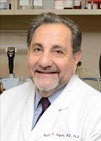
USA, New Orleans - After obtaining his MD in Tucuman, Argentina, Dr Nicolas Bazan was a postdoc at P&S, Columbia University, and Harvard Medical School. In his first lab at the Clarke Institute of Psychiatry, Toronto, he found that ischemia or seizures cause an increase in free arachidonic and docosahexaenoic acid pools in the brain. He then discovered that the lipid mediator platelet activating factor (PAF) is released by injury and that PAF antagonism is protective in experimental stroke. He identified PAF binding in synaptic and intracellular membranes; defined PAF-mediated regulation of early gene expression; and found that PAF mediates long-term potentiation and memory. He also uncovered that the supply of the omega-3 fatty acid DHA to synapses is liver-regulated and that DHA is retained in photoreceptors by a "short loop" (RPE-to-photoreceptors) and a "long loop" (liver-to-retina). He found that Usher's Syndrome patients have DHA shortage in the blood, implicating the long loop in retinal degenerations. He and his colleagues discovered the synthesis and bioactivity of neuroprotectin D1, which arrests apoptosis at the pre-mitochondrial level, is anti-inflammatory, and is neuroprotective in experimental stroke and Alzheimer's disease models. He found NPD1 is decreased in the CA1 area of Alzheimer's patients. The recognitions he has received include the Javits Neuroscience Award, NINDS, NIH; elected to Royal Academy of Medicine, Spain; elected fellow, Royal College of Physicians of Ireland, Dublin; and Proctor Medal, the highest honour of The Association for Research in Vision and Ophthalmology. He is the founding director of the LSU Neuroscience Center of Excellence, New Orleans. Dr Bazan's research focuses on synaptic signaling in neuronal plasticity, cell survival signaling in epilepsy and ischemia-reperfusion, and inflammatory signaling in Alzheimer's and other neurodegenerations.
KEYWORDS: neurodegeneration, Alzheimer’s disease, ophthalmology, retinal diseases, apoptosis
Eric H Baehrecke, PhD, University of Massachusetts Medical School, USA USA, Worcester - Eric Baehrecke obtained his Ph.D. from the University of Wisconsin – Madison, and was a Howard Hughes Medical Institute Fellow of the Life Sciences Research Foundation at the University of Utah during his postdoctoral studies. He was a faculty member of the University of Maryland from 1995-2007, and is currently a Professor in the Department of Molecular, Cell and Cancer Biology at the University of Massachusetts Medical School. His team studies the regulation and function of autophagy in cell survival and cell death, and the mechanisms controlling non-apoptotic cell death.
USA, Worcester - Eric Baehrecke obtained his Ph.D. from the University of Wisconsin – Madison, and was a Howard Hughes Medical Institute Fellow of the Life Sciences Research Foundation at the University of Utah during his postdoctoral studies. He was a faculty member of the University of Maryland from 1995-2007, and is currently a Professor in the Department of Molecular, Cell and Cancer Biology at the University of Massachusetts Medical School. His team studies the regulation and function of autophagy in cell survival and cell death, and the mechanisms controlling non-apoptotic cell death.
KEYWORDS: autophagy, apoptosis, Drosophila
Marco E. Bianchi, MSc, San Raffaele University in Milano, Italy

Italy, Milan - Marco E. Bianchi is Professor of Molecular Biology a San Raffaele University in Milano, where he also served in various managerial roles. He is most interested in inflammation, both in trauma and cancer, and in epigenetics. He first found that High Mobility Group Box 1 protein (HMGB1) is a DNA chaperone that both recognizes and induces DNA bending. He then realized that nuclear HMGB1 can be passively released or actively secreted by dead or stressed cells, and serves as a Damage Associated Molecular Pattern (DAMP). DAMPs are signals of tissue distress that Polly Matzinger had hypothesized in her “Danger Theory” to initiate immune responses, but had not been identified experimentally. He then showed that HMGB1 has multiple redox forms that bind different receptors. The switching of HMGB1 between its redox forms is critical for the damaged tissue to decide to continue inflammation or start healing. In cancer as well, HMGB1 redox forms support tumor growth or instruct immune responses, for example in Immunogenic Cell Death. He also demonstrated that the number of nucleosomes is actively controlled by the cells. The variation in nucleosome number is now an emerging theme in epigenetics, with implications for aging, cancer and inflammation. To date, Marco E. Bianchi has authored more than 200 publications, and is a coinventor on 13 patents. He founded Hmgbiotech, where he still is a co-owner.
KEYWORDS: inflammation, epigenetics, HMGB1, DAMPs, immunogenic cell death
Christoph Borner, MSc, PhD, Albert Ludwigs University of Freiburg, Germany
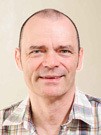
Germany, Freiburg - Christoph Borner studied Biology at the University in Basel where he graduated in 1984 with a specialization in biochemistry. He continued his training under the supervision of Prof. Urs Eppenberger and Dr. Doriano Fabbro at the Women’s Hospital of the University of Basel and received his PhD in 1988 on the topic of the immunological and biochemical characterization of protein kinase C (PKC) in human breast cancer cells. He then got a postdoctoral fellowship of the Swiss National Science Foundation (SNF) to join the laboratory of Prof. I. Bernhard Weinstein at the Columbia University in New York City to continue his work on the potential oncogenic function of particular PKC isoforms. In 1991 he returned to Switzerland to perform a second postdoc/maître assistant position in the laboratory of Prof. Jürg Tschopp at the Institute of Biochemistry of the University of Lausanne in Epalinges. Here he completely changed the research topic and started to work on apoptosis, in particular the characterization of the survival factor Bcl-2, the only known member of the protein family at that time. After 2 years, he succeeded to obtain a prestigious SNF START grant (today called Junior Professorship) to become for the first time an independent group leader at the Institute of Biochemistry of the University of Fribourg, Switzerland. He continued to work on the Bcl-2 family (in particular on its binding partners and subcellular localization) and also began studying caspase-independent cell death mechanisms.
In 2000 he was appointed as Associate Professor in Medical Cell Research at the Institute of Molecular Medicine of the Albert Ludwigs University of Freiburg, Germany. He was promoted to Full Professor at the same institution in 2006 and was the first to win the competition to build up a doctoral/graduate school (the Spemann Graduate School of Biology and Medicine, SGBM) in the frame of the German Excellence Initiative in Freiburg. He successfully defended the school for the second funding phase in 2012 and also became an executive board member of the excellence research cluster BIOSS (Centre of Biological Signaling Studies). He also helped building up a new study track in Molecular Medicine from 2000 on and was its study dean from 2009-2010. Recently, he became the director of the International Master Program in Medical and Biological Sciences (IMBS) between the Universities of Buenos Aires and Freiburg and received the Doctor honoris causa of the University of Buenos Aires for his achievement in the program. Since he started to work in Freiburg, Germany, Christoph Borner has made major contributions to the field of interaction partners and posttranslational modifications of Bcl-2 family members, mechanisms of caspase-independent cell death and, more recently, identification of death signaling pathways induced by viruses and fungi as well as by FasL in conjunction with TNFα in primary hepatocytes.
KEYWORDS: Bcl-2 family members, caspase-independent cell death, death signaling pathways, FasL, TNF
Eleonora Candi, PhD, University of Rome “Tor Vergata”, Italy
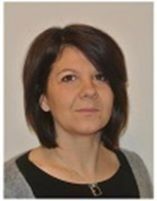 Italy, Rome - Eleonora Candi, received the Ph.D. degree at the Department of Experimental Medicine and Biochemical Sciences of University of Rome “Tor Vergata”, in 1995. She did her pre- and post-doctoral training, from 1993-1998, at the Skin Biology Branch, NIAMS, National Institute of Health, Bethesda, MD, USA, working under the supervision of Dr PM Steinert on transglutaminases and their substrates. From 1999 to 2001 she received a Telethon Research Fellowship to study the role of transglutaminases in the genetic disease lamellar ichthyosis. Currently, she is full-professor in Molecular Biology at the University of Rome “Tor Vergata”, Department of Experimental Medicine and Surgery. Her current research interests include the role of p63, homolog of p53, and non-coding RNAs in epithelia development and tumour formation, using both in vitro and in vivo models.
Italy, Rome - Eleonora Candi, received the Ph.D. degree at the Department of Experimental Medicine and Biochemical Sciences of University of Rome “Tor Vergata”, in 1995. She did her pre- and post-doctoral training, from 1993-1998, at the Skin Biology Branch, NIAMS, National Institute of Health, Bethesda, MD, USA, working under the supervision of Dr PM Steinert on transglutaminases and their substrates. From 1999 to 2001 she received a Telethon Research Fellowship to study the role of transglutaminases in the genetic disease lamellar ichthyosis. Currently, she is full-professor in Molecular Biology at the University of Rome “Tor Vergata”, Department of Experimental Medicine and Surgery. Her current research interests include the role of p63, homolog of p53, and non-coding RNAs in epithelia development and tumour formation, using both in vitro and in vivo models.
KEYWORDS: skin development, skin cancer, p53/p63, non-coding RNAs, animal models
Francis Ka-Ming Chan, PhD, Duke University School of Medicine, USA

USA, Durham - Francis Chan is Professor and Vice Chair of the Department of Immunology at the Duke University School of Medicine. He graduated from the University of California, San Diego with Summa Cum Laude and went to the University of California, Berkeley for his PhD study. He was a Cancer Research Institute (New York) postdoctoral fellow in the laboratory of Michael Lenardo at the National Institutes of Health. He started his independent research group at the University of Massachusetts Medical School where he rose through the ranks and became Full Professor and the Chair of the Immunology and Microbiology Program. In 2018, he moved to Duke University School of Medicine. Francis’ research interests center around cytokine signaling, cell death (especially necroptosis), host-pathogen interaction and immune responses.
Keywords:TNF, inflammation, viral infection, cancer, necroptosis, apoptosis, immune responses
Navdeep Chandel, BA, PhD, Northwestern University, USA
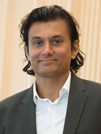
USA, Chicago - Navdeep Chandel is a professor in the Department of Medicine and Cell Biology at Northwestern University located in Chicago. He received a BA in mathematics and Ph.D. in Cell Physiology at University of Chicago. He also did his post-doctoral work at University of Chicago. In 2000, he established his lab at Northwestern University focusing on the role of mitochondria as signaling organelles. Historically, mitochondria have been primarily viewed as biosynthetic and bioenergetic organelles. His work has elucidated that mitochondria participate in signaling by releasing reactive oxygen species which regulate distinct biological outcomes including differentiation, proliferation, and adaptation to stress.
KEYWORDS: mitochondria, ROS, immunology, lung cancer
Aaron Ciechanover, MSc, MD, DSc, Technion - Israel Institute of Technology, Israel

Israel, Haifa - Aaron Ciechanover was born in Haifa, Israel in 1947. He is a Distinguished Professor in the Technion - Israel Institute of Technology in Haifa. He received his M.Sc. (1971) and M.D. (1975) from the Hebrew University in Jerusalem, and his D.Sc. (1982) from the Technion. There, as a graduate student with Dr. Avram Hershko and in collaboration with Dr. Irwin A. Rose from the Fox Chase Cancer Center in Philadelphia, USA, they discovered that covalent attachment of ubiquitin to a target protein signals it for degradation. They deciphered the mechanism of conjugation, described the general proteolytic functions of the system, and proposed a model according to which this modification serves as a recognition signal for a specific downstream protease.
As a post doctoral fellow with Dr. Harvey Lodish at the M.I.T., he continued his studies on the ubiquitin system and made additional important discoveries. It is now clear that ubiquitin-mediated proteolysis plays major roles in numerous cellular processes, and aberrations in the system underlie the pathogenesis of many diseases, among them certain malignancies and neurodegenerative disorders. Consequently, the system has become an important platform for drug development. Among the numerous prizes Ciechanover received are the 2000 Albert Lasker Award, the 2003 Israel Prize, and the 2004 Nobel Prize in Chemistry (shared with Hershko and Rose). Among many academies, Ciechanover is a member of the National Academy of Sciences of the USA (Foreign Associate) and the Israeli Academy of Sciences and Humanities.
KEYWORDS: pathogenetic mechanisms of diseases, malignancies and neurodegenerative disorders, ubiquitin‐mediated protein degradation
Rune Busk Damgaard, MSc, PhD, Technical University of Denmark, Denmark
 Denmark, Copenhagen - Dr Rune Busk Damgaard is an Associate Professor and research group leader at Department of Biotechnology and Biomedicine at the Technical University of Denmark. He obtained his MSc in Molecular Biomedicine (2010) from the University of Copenhagen, Denmark, and his PhD in molecular immunology (2014) from Professor Mads Gyrd-Hansen's laboratory at the Novo Nordisk Foundation Center for Protein Research, Faculty of Health and Medical Sciences, at the same institution. Subsequently, he was a Research Scientist with Professor Gyrd-Hansen at the University of Oxford (2014) before joining the laboratory of Professor David Komander as a Postdoctoral Fellow (2014-2019) at the MRC Laboratory of Molecular Biology and Corpus Christi College, University of Cambridge, UK. Dr Damgaard joined the faculty at the Technical University of Denmark in 2020. His current work focuses on the mechanisms by which protein ubiquitination regulates signalling and cellular outcomes at the interface of inflammation, cell death, and metabolism and how dysregulation of ubiquitin-mediated signalling leads to disease.
Denmark, Copenhagen - Dr Rune Busk Damgaard is an Associate Professor and research group leader at Department of Biotechnology and Biomedicine at the Technical University of Denmark. He obtained his MSc in Molecular Biomedicine (2010) from the University of Copenhagen, Denmark, and his PhD in molecular immunology (2014) from Professor Mads Gyrd-Hansen's laboratory at the Novo Nordisk Foundation Center for Protein Research, Faculty of Health and Medical Sciences, at the same institution. Subsequently, he was a Research Scientist with Professor Gyrd-Hansen at the University of Oxford (2014) before joining the laboratory of Professor David Komander as a Postdoctoral Fellow (2014-2019) at the MRC Laboratory of Molecular Biology and Corpus Christi College, University of Cambridge, UK. Dr Damgaard joined the faculty at the Technical University of Denmark in 2020. His current work focuses on the mechanisms by which protein ubiquitination regulates signalling and cellular outcomes at the interface of inflammation, cell death, and metabolism and how dysregulation of ubiquitin-mediated signalling leads to disease.
KEYWORDS: ubiquitination, cell signalling, cell death, stress responses, cancer, inflammatory disease
Alexei Degterev, MSc, PhD, Tufts University, USA

USA, Boston - Dr. Degterev is an Associate Professor at the Department of Developmental, Molecular and Chemical Biology at Tufts University. His work focuses on the analysis of the mechanisms and development of the small molecule modulators of cell death processes that contribute to human pathologies. Dr. Degterev pursues multidisciplinary studies combining cell and chemical biology, and animal pharmacology. Dr. Alexei Degterev earned M.S. in Chemistry from Moscow State University, Russia and Ph.D. in Biochemistry from Boston University School of Medicine, MA. Upon graduation, he joined the laboratory of Dr. Junying Yuan in the Department of Biology of Harvard Medical School as a post-doctoral fellow and, subsequently, as Instructor in Cell Biology. Since November 2005, Dr. Degterev is an Assistant Professor of Biochemistry at Tufts University. Dr. Degterev is a recipient of the Mentored Career Development Award from the National Institute on Aging, Alzheimer’s Research Pilot Award from the American Health Assistance Foundation and Smith Family Award for Excellence in Biomedical Research from the Massachusetts Medical Foundation. Dr. Degterev is the author of multiple patents and more than 60 scientific publications.
KEYWORDS: small molecules, cell death, necroptosis, inflammation
Ruggero De Maria, MD, PhD, Università Cattolica del Sacro Cuore, Italy
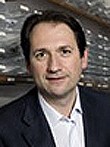
Italy, Rome - Ruggero De Maria graduated in Medicine in 1989 and specialized in Endocrinology in 1994. He has been Scientific Director of the Regina Elena National Cancer Institute (Rome, Italy) since November 2011. He was appointed this position by the Italian Minister of Health for a five year term. His aim is to create a productive synergy between basic and clinical research.
Throughout the years, De Maria has gained international recognition for his research activity on cancer stem cells (CSCs), a rare population of cells responsible for tumour initiation and growth. During his term as Head of the Department of Hematology, Oncology and Molecular Medicine at the National Institute of Health, Rome (Istituto Superiore di Sanità) from 2008 to 2011 his research team was the first to isolate CSCs from colon and lung cancers and develop innovative CSC-based preclinical models of these tumours, thus has published several seminal articles on glioblastoma stem cells.
De Maria's current research programs are centred on the molecular characterization of CSCs with the aim of discovering innovative biomarkers and molecular targets to improve cancer management and develop novel cancer therapies. Other research interests comprise the study of microRNA and the microenvironment in solid tumors.
In 2013, he was appointed President of the Italian ACC Association (Alleanza Contro il Cancro/Alliance against Cancer) until 2018. He currently holds several Editorial Board positions on internationally renowned scientific journals. He has published over 150 original peer-reviewed articles and reviews in the most important journals including Nature, Science, Nat Med, Nat Immunal, J Exp Med. He sits on various prestigious Advisory Board Committees such as the Pezcoller Foundation AACR International Award, AACR INNOVATOR Award, Veronesi Foundation, AIRC, PACRI, ATENA, EuroCSCT Marie Curie Network, and InBev-BAILLET LATOUR Health Prize.
KEYWORDS: cancer stem cells, microRNA, tumor microenvironment, glioblastoma
Giannino Del Sal, PhD, University of Trieste, Italy
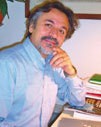
Italy, Trieste - Giannino Del Sal is a biologist expert in the mechanisms of tumor initiation and progression. Director of the Department of Life Sciences since 2012 and Full Professor in Applied Biology since 2001 at the University of Trieste, Italy, Giannino Del Sal is Chief of the Molecular Oncology Unit at Laboratorio Nazionale CIB (LNCIB) in Area Science Park in Trieste since 1996.
Giannino Del Sal graduated in Biology at the University of Trieste, and had his research training at the International Centre for Genetic Engineering and Biotechnology (ICGEB) in Trieste, at the European Molecular Biology Laboratory (EMBL) in Heidelberg, at LNCIB in Trieste and at the University of Trieste. Thereafter, he worked as an associate expert at ICGEB in the Cell and Genome Studies Unit, as a visiting scientist in the Laboratory of Cell Biology of the US biotech company Mitotix Inc. in Cambridge, and as an assistant and associate professor in Applied Biology at the University of Trieste.
Since the beginning of hisscientific career, Del Sal's research has been mainly focused on tumor biology, embracing and integrating the study of the mechanisms of tumor suppression in health and cancer, the investigation of the role of different oncogenic pathways in cancer development and metastasis, and more translational activities devoted to the development of new tools for cancer therapy.
Del Sal was the first to clone the Sonic Hedgehog binding protein GAS1, and to characterize its functions in the context of growth arrest. His team discovered new post-translational modifications and new sub-cellular localizations of the tumor suppressor p53, as well as new regulatory mechanisms of p53 and p53 family proteins. Focused on the role of phospho-dependent protein conformational changes as key signal transduction events in cancer, his group highlighted the role of the prolyl-isomerase Pin1 in Notch pathway control and in the control of proliferation and maintenance of normal and cancer stem cells of the mammary epithelium. His team discovered the contribution of Pin1 to full activation of mutant p53 oncogenic functions and characterized the proteasome machinery as a key target of a common gain-of-function program shared by diverse missense mutants of p53 in cancer. Del Sal's group discovered new hormonal and metabolic mechanisms of control of the Hippo pathway transducers YAP/TAZ, and using drug repositioning approaches identified compounds able to target YAP/TAZ and mutant p53 pathways in triple negative breast cancer.
To date, Giannino Del Salauthored over 120 publications among scientific articles,reviews and book chapters. He is also inventor of two patents. In 2006 he was elected member of EMBO.
KEYWORDS: p53, Hedgehog pathway, Hippo pathway, YAP/TAZ
Vishva Mitra Dixit, BM BCh, MD, Genentech, USA
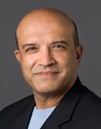
USA, San Francisco - Vishva Dixit has conducted pioneering studies defining key components of the cell death pathway. His laboratory was among the first to:
- show that caspases are components of the death receptor-induced apoptotic pathway;
- demonstrate that death receptors signal by an entirely novel mechanism of recruiting and activating a death protease (FLICE/caspase-8) by an induced proximity mechanism;
- identify the mammalian death protease equivalent to the CED3 protein in worms (YAMA/caspase-3) as well as other pro-apoptotic caspases including caspase-6, -7 and -9.
- show that the death domain-containing molecule MyD88 is a key signaling adaptor;
- discover paracaspases and metacaspases: two ancient families of caspase-related proteins, one of which plays a key role in MALT lymphoma;
- discover the non-canonical inflammasome pathway.
Vishva is currently Vice President of Research in Genetech, runs an active research laboratory, and has published well over a hundred scientific articles. He also has a significant number of patents to his name. He is a Foreign Member, European Molecular Biology Organization, a member of the Institute of Medicine, the American Academy of Arts and Sciences and the National Academy of Sciences.
KEYWORDS: caspases, inflammasome, FLICE/caspase-8
Kurt Engeland, PhD, Leipzig University, Germany
 Germany, Leipzig – Kurt Engeland is Professor of Molecular Oncology at the Faculty of Medicine at Leipzig University. He studied chemistry and biochemistry and obtained his PhD at Philipps University in Marburg, Germany. Kurt Engeland further trained in molecular genetics and cell biology at the Dana-Farber Cancer Institute and Harvard Medical School in Boston. The research focus of Kurt’s laboratory is on transcriptional control of the cell cycle and the function of the p53 tumor suppressor:
Germany, Leipzig – Kurt Engeland is Professor of Molecular Oncology at the Faculty of Medicine at Leipzig University. He studied chemistry and biochemistry and obtained his PhD at Philipps University in Marburg, Germany. Kurt Engeland further trained in molecular genetics and cell biology at the Dana-Farber Cancer Institute and Harvard Medical School in Boston. The research focus of Kurt’s laboratory is on transcriptional control of the cell cycle and the function of the p53 tumor suppressor:
- CHR promoter elements as repression and activation sites in transcription of cell cycle genes
- DREAM/MuvB complexes binding to CHR elements
- Binding and transcriptional activation of B-MYB and FOXM1 oncogenes through CHR sites
- p53 indirect transcriptional repression through the p53-p21/CDKN1A-DREAM pathway
- Deregulation of the p53-p21-DREAM pathway by the HPV E7 protein
- RB retinoblastoma tumor suppressor and DREAM cooperation in controlling cell cycle arrest
KEYWORDS: DREAM transcriptional repressor, MuvB complex, B-MYB, FOXM1, E2F, RB, p53 as transcription factor, transcriptional regulation, cell cycle
Alberto Gandarillas, PhD, HDR, Instituto de Investigación Marqués de Valdecilla, Spain, Institut National de la Santé et de la Recherche Médicale, France
 Madrid, Spain - Alberto Gandarillas is research Group leader at the IDIVAL (Santander, Spain) and the INSERM (Montpellier, France) health institutes. He obtained his PhD degree at the Universidad Autónoma of Madrid/CSIC. He was a postdoctoral fellow with Fiona Watt at the Cancer UK, in London. Subsequently, he became a permanent investigator at the French INSERM Institute fellow at the IGM of Montpellier of the CNRS/Université Montpellier II, in France. He then moved to the Université Montpellier I as a Group leader. His main research has focused on the molecular and cellular cues that control tissue development and are altered during cancer. During his PhD he identified mouse podoplanin, currently used as an invasive cancer marker. During his postdoctoral period, he found a role for MYC in stem Cell regulation. As an independent investigator, his Group contributed to the first tissue-specific MYC KO mice, in skin, liver and mammary gland. They also have unveiled a novel epithelial DNA damage-differentiation checkpoint.
Madrid, Spain - Alberto Gandarillas is research Group leader at the IDIVAL (Santander, Spain) and the INSERM (Montpellier, France) health institutes. He obtained his PhD degree at the Universidad Autónoma of Madrid/CSIC. He was a postdoctoral fellow with Fiona Watt at the Cancer UK, in London. Subsequently, he became a permanent investigator at the French INSERM Institute fellow at the IGM of Montpellier of the CNRS/Université Montpellier II, in France. He then moved to the Université Montpellier I as a Group leader. His main research has focused on the molecular and cellular cues that control tissue development and are altered during cancer. During his PhD he identified mouse podoplanin, currently used as an invasive cancer marker. During his postdoctoral period, he found a role for MYC in stem Cell regulation. As an independent investigator, his Group contributed to the first tissue-specific MYC KO mice, in skin, liver and mammary gland. They also have unveiled a novel epithelial DNA damage-differentiation checkpoint.
Currently, he runs a multidisciplinary team, including biologists, physicist, and clinicians of various hospital departments (Radiotherapeutic Oncology, Maxillofacial Surgery, otorhinolaryngology, thoracic surgery, Paediatric Surgery and Plastic Surgery). They mostly investigate the pathways controlling cell fate in response to genetic damage and search for alterations of these pathways leading to genomic instability. Their main lines of research include mechanisms, biomarkers, radiotherapy and optimisation of the treatment of cancer. They apply their technology onto personalised medicine of tumours and rare diseases.
KEYWORDS: cell differentiation, epithelial cancer, DNA damage, cell cycle, melanocytes, melanoma, homeostasis, rare disease
Douglas R Green, PhD, St Jude Children’s Research Hospital, USA
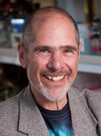
USA, Memphis - Doug Green is the Peter C. Doherty Endowed Chair of Immunology at St Jude Children’s Research Hospital. Prior to this he was Head of the Division of Cellular Immunology at the La Jolla Institute for Allergy and Immunology. Professor Green received his PhD from Yale University. His research has focused on the process of active cell death and cell survival. His research extends from the role of cell death in the regulation of cancer and immune responses in the whole organism to the fundamental molecular events directing the death of the cell. He has published over 450 papers, chapters, and books, and is an ISI "highly cited" investigator. His recent book is “Means to an End: Apoptosis and Other Cell Death Mechanisms,” published in 2011 by Cold Spring Harbor Laboratory Press and available at Amazon.
KEYWORDS: apoptosis, cancer, immune system
J Marie Hardwick, PhD, Johns Hopkins University, USA
 USA, Baltimore - Dr. Hardwick is a Professor at Johns Hopkins University. She holds appointments in the Schools of Public Health and Medicine, Departments of Molecular Microbiology & Immunology, Pharmacology and Molecular Sciences, Neurology, Biochemistry & Molecular Biology, and Oncology. She earned a PhD in microbiology from the University of Kansas and was a postdoctoral fellow in virology at the University of Alabama, Birmingham. Her lab uses mouse, Drosophila and yeast genetic model systems to understand the molecular determinants of cell death, particularly in the brain. The overall strategy is to determine the normal cellular function of cell death factors.
USA, Baltimore - Dr. Hardwick is a Professor at Johns Hopkins University. She holds appointments in the Schools of Public Health and Medicine, Departments of Molecular Microbiology & Immunology, Pharmacology and Molecular Sciences, Neurology, Biochemistry & Molecular Biology, and Oncology. She earned a PhD in microbiology from the University of Kansas and was a postdoctoral fellow in virology at the University of Alabama, Birmingham. Her lab uses mouse, Drosophila and yeast genetic model systems to understand the molecular determinants of cell death, particularly in the brain. The overall strategy is to determine the normal cellular function of cell death factors.
The Hardwick lab identified non-apoptotic "day-job" functions of anti- and pro-apoptotic regulators of cell death including cellular and viral BCL-2 family proteins. They found that BCL-2 family proteins and caspases regulate viral pathogenesis in the brain, that BCL-2 family proteins can be cleaved by caspases to convert them from anti- to pro-death functions, and that BCL-2 proteins regulate neuronal activity and alter seizure behaviors in mice. BCL-xL regulates membrane structure, mitochondrial membrane dynamics and energetics. She developed yeast (Saccharomyces cerevisiae) as a model to identify novel factors that mediate gene-dependent cell death. These approaches also revealed the pressures of cell death on genome evolution. Knocking out any individual gene in the yeast genome leads to two mutations, the engineered gene knockout and a specific second evolved mutation in another gene that dramatically alters cell death and/or growth rates. These evolved yeast mutations have led to the identification of new human disease genes that cause neurodegeneration. She is the inaugural David Bodian Professor and is a fellow of the American Association for the Advancement of Science.
KEYWORDS: Bcl-2 family proteins, mitochondria, cell energetics, yeast genetics, neurodegeneration
H Robert Horvitz, PhD, Massachusetts Institute of Technology, USA
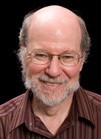
USA, Boston - Dr. H Robert Horvitz received the Nobel Prize in Physiology or Medicine in 2002. He is the David H. Koch Professor of Biology at the Massachusetts Institute of Technology (MIT); an Investigator of the Howard Hughes Medical Institute; Neurobiologist (Neurology) at the Massachusetts General Hospital; a Member of the MIT McGovern Institute for Brain Research; and a Member of the MIT Koch Institute for Integrative Cancer Research. Dr. Horvitz received S.B. degrees in Mathematics and in Economics from MIT in 1968. He performed his graduate studies at Harvard University in the laboratories of Drs. James Watson and Walter Gilbert and received his PhD in Biology in 1974. Dr. Horvitz then joined Dr. Sydney Brenner as a postdoctoral fellow at the Medical Research Council Laboratory of Molecular Biology in Cambridge, England. Since 1978, Dr. Horvitz has been an Assistant, Associate and Full Professor in the Department of Biology at the Massachusetts Institute of Technology. His research involving C. elegans has helped define evolutionarily conserved molecular genetic pathways important in human biology and human disease, including the pathway responsible for programmed cell death, or apoptosis. Dr. Horvitz is a member of the Board of Trustees of the Massachusetts General Hospital and is Chairman of the Board of Trustees of the Society for Science and the Public. He was President of the Genetics Society of America. He has served on many editorial boards, visiting committees and advisory committees and has received numerous honors. Dr. Horvitz has been a consultant to pharmaceutical, biotechnology and venture capital companies.
KEYWORDS: neurobiology, C. elegans, apoptosis
Hidenori Ichijo, PhD, The University of Tokyo, Japan

Japan, Tokyo - Dr Ichijo's research group is based at The University of Tokyo (http://www.f.u-tokyo.ac.jp/~toxicol/html/member/ichijo.html), Japan. Hidenori Ichijo performed his PhD at the Tokyo Medical and Dental University. In 1998, he became professor and PI at the Tokyo Medical and Dental University. His research activities focus on molecular mechanisms of stress signalling pathways, including ASK family MAP kinases, PGAM5 mitochondrial protein phosphatase, and SOD1-Derlin-1-dependent ER stress.
These phenomena are studied in an integrated way at the level of biochemistry, cell biology and various diseases models. His research increasingly uses genome-wide siRNA library screening, chemical biology, high content screening and development of conditional transgenic models. Hidenori Ichijo's work has been published in more than 227 articles and has been cited over 21,000 times, with an h index of 75.Hidenori Ichijo has been vice president of The Japanese Biochemical Society (2007-2008, 2011-2013) and is a president elect of 39th annual meeting of The Molecular Biology Society of Japan (MBSJ) (http://www.mbsj.jp/en/meetings/annual/index.html) (2016). He received Academic Award of the Mochida Memorial foundation in 2013.
KEYWORDS: biochemistry, molecular biology, cell biology, signal transduction, stress, cancer, neurodegeneration, inflammation
Wei Jia, BSc, MSc, PhD, Hong Kong Baptist University, Hong Kong, Shanghai Jiao Tong University School of Medicine, China
 China, Hong Kong - Wei Jia is the Chair Professor in Chinese Medicine and Systems Biology at Hong Kong Baptist University and director of the Hong Kong Traditional Chinese Medicine Phenome Research Centre (HKPR), and is also a adjunct professor at the Shanghai Jiao Tong University School of Medicine.
China, Hong Kong - Wei Jia is the Chair Professor in Chinese Medicine and Systems Biology at Hong Kong Baptist University and director of the Hong Kong Traditional Chinese Medicine Phenome Research Centre (HKPR), and is also a adjunct professor at the Shanghai Jiao Tong University School of Medicine.
Prof. Jia has been specializing in scientific research and industrialization in the pharmacy and medical sectors for over two decades. He has founded and assisted the operation of an array of academic or research and development (R&D) institutes funded by businesses, including medical centers for discipline-based cross-transformation research, clinical multi-omics research platforms, and R&D institutes of traditional Chinese medicines and natural drugs.
He has published over 500 scientific papers on international academic periodicals, which have been quoted for more than 37,000 times, with an h-index of 92 on Google Scholar, and 10 academic books, with the ownership of 20 invention patents. As the chief scientist, Jia led and completed numerous scientific research programs, including National Basic Research Program of China (973 Program), NIH R01 project, NCI/NIH U01 project, and many others. His research findings were published on top-level academic journals, such as Science, Nature Reviews Drug Discovery, Cancer Cell, Science Translational Medicine, Blood, Proceedings of the National Academy of Sciences USA (PNAS), among other high-level international learned periodicals. Finding of his study on nephrotoxicity among children caused by interaction between milk-based infant formula contaminated with melamine and intestinal bacteria in children was on the list of Science's Top 10 Breakthroughs of 2013.
Keywords: cancer metabolism
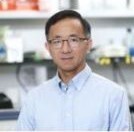 Xuejun Jiang, PhD, Memorial Sloan Kettering Cancer Center, USA
Xuejun Jiang, PhD, Memorial Sloan Kettering Cancer Center, USA
US, New York City – Xuejun Jiang obtained his PhD in 1999 from the University of Texas Southwestern Medical Center studying G protein signaling with Dr. Paul Sternweis. He then pursued his postdoctoral training with Dr. Xiaodong Wang studying mitochondria-mediated apoptosis. Xuejun joined Memorial Sloan Kettering Cancer Center (MSKCC) to start his independent research in 2003 and is currently a Member and Professor at the Cell Biology Program of MSKCC. His lab is investigating the mechanisms of cell survival (particularly autophagy) and death (particularly ferroptosis), as well as their role in normal biology and disease. In the field of autophagy, his lab is one of the first that made the original discovery of the ULK1 autophagy-initiating kinase complex and has revealed a mechanism of addition of cancer cells to autophagy through the deregulation of ULK1 function. In the ferroptosis field, his lab is instrumental in pioneering the concept surrounding the metabolic nature of ferroptosis. His lab also discovered a novel ferroptosis surveillance mechanism independently of GPX4, as well as novel regulation of ferroptosis by processes such as autophagy, energy metabolism, and multiple cancer signaling pathways, hence suggesting new cancer therapeutic strategies.
Key words: mitochondria-mediated apoptosis, ULK1, ferroptosis
Richard Kitsis, AB, MD, Albert Einstein College of Medicine, USA

USA, New York City - Richard N. Kitsis is the Dorros Professor of Medicine and Professor of Cell Biology at Albert Einstein College of Medicine in New York City. Rick received his A.B. in Chemistry from Harvard and M.D. from the University of California, San Francisco. Following clinical training in internal medicine and cardiology at Massachusetts General Hospital, Boston VA Medical Center, and Albert Einstein College of Medicine, he undertook postdoctoral training in molecular and cellular biology and mouse genetics. He has practiced cardiology and served as chief of cardiology at Einstein, but for the past 20 years has been devoted full-time to bench research. His work has dealt with fundamental mechanisms of cell death and roles of cell death in a variety of human diseases. His lab provided the initial evidence that regulated forms of cell death play causal roles in both myocardial infarction and heart failure. More recently, his research has focused on interconnections between apoptosis and necrosis at the mitochondria and how mitochondrial death signaling interrelates with other basic mitochondrial processes such as dynamics. In collaboration with Dr. Evripidis Gavathiotis, he has created selective small molecule allosteric inhibitors of BAX activation that abrogate both BAX-dependent apoptosis and necrosis. These have been applied to several disease paradigms including protecting the heart against damage from cancer therapies.
KEYWORDS: apoptosis, necrosis, mitochondrial death signaling, BAX, heart failure, myocardial infraction
Richard A Knight, PhD, University College London, UK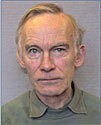 UK, London - Honorary Senior Lecturer in the Medical Molecular Biology Unit, Institute of Child Health, University College London, and member of the Apoptosis and Cancer Laboratory, Medical Research Council Toxicology Unit, Leicester, UK. Scientific interests include all aspects of cell death, especially in relation to the p53 family, the role of STAT transcription factors in cell cycle control and apoptosis and the mechanisms of cytoprotection by the urocortins, particularly in cardiovascular and neuronal pathologies.
UK, London - Honorary Senior Lecturer in the Medical Molecular Biology Unit, Institute of Child Health, University College London, and member of the Apoptosis and Cancer Laboratory, Medical Research Council Toxicology Unit, Leicester, UK. Scientific interests include all aspects of cell death, especially in relation to the p53 family, the role of STAT transcription factors in cell cycle control and apoptosis and the mechanisms of cytoprotection by the urocortins, particularly in cardiovascular and neuronal pathologies.
KEYWORDS: STAT; apoptosis; p73; urocortin; neurodegeneration
Sharad Kumar, BSc, MSc, DSc, University of South Australia, University of Adelaide, Australia
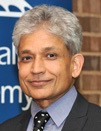
Australia, Adelaide - Sharad Kumar is the co-Director of the Centre for Cancer Biology, a Research Professor and Chair of Cancer Biology at the University of South Australia, and an affiliate Professor at the University of Adelaide. His laboratory discovered a number of key genes/proteins, including the developmentally regulated Nedd genes, such as Nedd1, a key centrosomal protein required for y-tubulin recruitment; Nedd2 (caspase-2), one of the first mammalian caspases; Nedd4, the first and the founding member of the WW-HECT type of ubiquitin-protein ligase family; Nedd5 (Sept2), the first characterised mammalian septin; and Nedd8, a ubiquitin-like protein involved in a protein modification pathway, now widely known as neddylation. The laboratory also discovered a large part of the Drosophila cell death machinery, including four caspases and both Bcl-2-like proteins, and defined a caspase-independent, autophagy-depended cell death process. Other discoveries from his group include Ndfips as regulators of the Nedd4 family of ubiquitin ligases, the functions of Nedd4 family of ubiquitin ligases and Ndfips in regulating ion channels and transporters, and an unexpected role of caspase-2 as a tumour suppressor. His group continues to study caspase biology and functions, mechanisms of developmentally programmed cell death, and the physiological functions and regulation of the Nedd4 family members. He is a Fellow of the Australian Academy of Science and 2013 ASBMB Lemberg Medallist. His work has also been recognised through the 2003 ASBMB Amersham Biosciences Award, the 2009 Ranbaxy Research Award and the 2013 FAOBMB Research Excellence Award.
KEYWORDS: caspases, apoptosis, metabolism, ageing, cancer, Nedd4 family
Philipp A. Lang, MD, PhD, University of Dusseldorf, Germany

Philipp A. Lang concluded medical school at the Universities of Tubingen and Zurich and Yale University. After his studies and his medical thesis about the suicidal erythrocyte death Dr. Lang worked in Zurich as well as in Toronto on immune functions during viral and bacterial infections and graduated as a PhD of the University of Toronto at the Department of Immunology. From 2010 to 2014 he worked as a principal investigator on the immune response and liver pathology during viral hepatitis at the Heinrich Heine University of Dusseldorf, Germany. Since 2014 Philipp is Full Professor and Director of the Department of Molecular Medicine II at the University of Dusseldorf. Currently, his research is focusing on infection and cancer immunology.
Keywords: Immune activation, viral infection, cancer, immunopathology, liver damage
Xin Lu, PhD, Oxford University, UK

UK, Oxford - Professor Xin Lu studied Biochemistry at Sichuan University and then Cancer Research at Peking Union Medical School in Beijing. She was awarded an IARC WHO fellowship to come to the Imperial Cancer Research Fund in London in 1986 and studied for her PhD under Birgit Lane. In 1993 she joined the Ludwig Institute for Cancer Research (LICR), St. Mary's Branch, Imperial College as an Assistant Member and was progressively promoted to LICR Full Member and Professor at Imperial College in 2000. In 2004, she was appointed as the Director of the LICR’s UCL Branch but moved the unit to Oxford in 2007. She is an elected Member of EMBO and Fellow of the Academy of Medical Sciences.
Professor Lu's research is focused on understanding tumour suppression and to identify molecular switches that selectively kill cancer cells. Cancer is a disease where cells grow in the wrong place at the wrong time. Regenerative medicine involves growing cells to replace the ones that were lost or damaged. Therefore, understanding molecular mechanisms that control cell growth is vital, both to stop cancer cell growth and to grow normal cells to replace the damaged ones. Professor Lu's research team has been one of the major research groups in the world to study the regulation of the tumour suppressor function of the p53 protein whose function is lost in most human cancers. The majority of nuclear import pathways are mediated by importin-cargo interactions. Yet around 50% of all nuclear proteins do not use this pathway. Through a detailed understanding of the regulation of the ASPP proteins, Professor Lu's group has identified identified a code that defines RaDAR as a novel nuclear import pathway of ankyrin repeats (AR) containing proteins. AR is a structural motif found in over 250 human proteins with diverse functions. The RaDAR (RanGDP/AR) pathway is acquired by the most common familial melanoma-associated CDKN2A mutation, leading to nuclear accumulation of mutant p16ink4a. It is frequently used by AR-containing transcriptional regulators, especially those regulating NF-ĸB/p53. All these suggest the existence of an Ankyrin repeats signaling and its role in infection and cancer.
KEYWORDS: apoptosis, p53, EBV, ASPP proteins, Ankyrin repeats signaling
Jan Paul Medema, MSc, PhD, Amsterdam University Medical Centre, The Netherlands

The Netherlands, Amsterdam - Jan Paul Medema studied Chemistry in Leiden graduating in 1991 with a specialisation in biochemistry and medical biochemistry. He continued his training under the guidance of professor Hans Bos at the University of Utrecht and received his PhD in 1996 on the topic of the oncoprotein p21Ras. He then decided to study the role of programmed cell death in tumor biology and immunology in order to understand the basic concepts of cell death signalling and the way these are perturbed in cancer. He unravelled several modes of cell death escape, specifically in the face of a cytotoxic immune response. Later on his work moved into the direction of cancer heterogeneity and its role in cell death resistance, tumor growth and therapy response. His work centers around the role of cancer stem cells in these processes as well as the role of inter-patient heterogeneity in the aggressiveness of tumors.
KEYWORDS: programmed cell death, tumor biology, immunology, cancer heterogeneity, cancer stem cells
James Murphy, PhD, Walter and Eliza Hall Institute of Medical Research in Melbourne, Australia
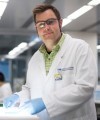 Australia, Melbourne – James Murphy is Head of the Inflammation Division at the Walter and Eliza Hall Institute of Medical Research in Melbourne, Australia. He completed his undergraduate studies in his home town of Christchurch, New Zealand, before completing his PhD studies at the Australian National University, Canberra, Australia in 2003. As a CJ Martin Fellow of the National Health and Medical Research Council of Australia (NHMRC), he completed postdoctoral training in the lab of the signalling guru, the late Tony Pawson (Toronto, Canada). He moved to the Walter and Eliza Hall Institute in 2007 and was appointed group leader in January 2015, Associate Professor in 2017 and Head of the Inflammation Division in 2019. He has pursued a mechanistic understanding of the roles of several pseudokinases, protein kinases, cytokines/receptors and epigenetic regulators in signal transduction, with a particular focus on MLKL, a key pseudokinase in the necroptosis cell death pathway. These studies have culminated in >130 publications to date.
Australia, Melbourne – James Murphy is Head of the Inflammation Division at the Walter and Eliza Hall Institute of Medical Research in Melbourne, Australia. He completed his undergraduate studies in his home town of Christchurch, New Zealand, before completing his PhD studies at the Australian National University, Canberra, Australia in 2003. As a CJ Martin Fellow of the National Health and Medical Research Council of Australia (NHMRC), he completed postdoctoral training in the lab of the signalling guru, the late Tony Pawson (Toronto, Canada). He moved to the Walter and Eliza Hall Institute in 2007 and was appointed group leader in January 2015, Associate Professor in 2017 and Head of the Inflammation Division in 2019. He has pursued a mechanistic understanding of the roles of several pseudokinases, protein kinases, cytokines/receptors and epigenetic regulators in signal transduction, with a particular focus on MLKL, a key pseudokinase in the necroptosis cell death pathway. These studies have culminated in >130 publications to date.
KEYWORDS: necroptosis, MLKL, RIPK3, pseudokinases, structural biology
Shigekazu Nagata, PhD, Osaka University, Japan
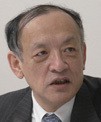
Japan, Tokyo - Dr. Nagata obtained a Ph.D. in 1977 from University of Tokyo for the thesis "Purification and characterization of polypeptide chain elongation factor from pig liver". From 1977 to 1981, he did post-doctoral research in laboratory of Prof. Charles Weissmann (Institute of Molecular Biology, University of Zürich), where human interferon-α cDNA was identified. In 1982, Dr. Nagata returned to Institute of Medical Science, University of Tokyo as an assistant professor, and identified cDNA for granulocyte colony-stimulating factor (G-CSF). In 1987, Dr. Nagata was appointed as a Head of Molecular Biology Department of Osaka Bioscience Institute, where he characterized G-CSF receptor, and started to work on apoptosis. From 1995-2007, he was a professor in Department of Genetics, Osaka University Medical School. In 2007, he moved to Kyoto University as a professor in Department of Medical Chemistry, Graduate School of Medicine. Dr. Nagata was the president of Japanese Biochemical Society (2005-2006), and Japanese Society of Molecular Biology (2007-2008). He was a councilor for Human Frontier Science Program in Strasbourg from 2006 to 2009, and a member of Science Council of Japan since 2008. Dr. Nagata serves or served as an editorial member of various journals including Science, Immunity, Cancer Cell, and Cell Death Differ. The awards include Emil von Behring Prize (Germany), Robert Koch Award (Germany), Prix Lacassagne (France), Debrecen Award (Hungary), Japan Academy Prize and Imperial Prize from the Japan Academy, and Keio Medical Science Prize from Keio University. Dr. Nagata is recognized as a Person of Cultural Merit from the Japanese Government in 2001 and nominated to an associate of The Japan Academy in 2010. He obtained a Honorary Doctorate from University of Zürich in 2012.
KEYWORDS: G-CSF, apoptosis, phagocytosis
Kim Newton, PhD, Genentech, USA
 USA, South San Francisco – Kim Newton obtained her Ph.D. from the University of Melbourne, Australia, working at the Walter and Eliza Hall Institute of Medical Research. She completed postdoctoral studies in the Molecular Oncology Department at Genentech and is currently a Principal Scientist in their Physiological Chemistry Department. Her team studies the relationship between cell death and inflammation.
USA, South San Francisco – Kim Newton obtained her Ph.D. from the University of Melbourne, Australia, working at the Walter and Eliza Hall Institute of Medical Research. She completed postdoctoral studies in the Molecular Oncology Department at Genentech and is currently a Principal Scientist in their Physiological Chemistry Department. Her team studies the relationship between cell death and inflammation.
KEYWORDS: RIPK1, RIPK3, caspase-8, apoptosis, necroptosis, pyroptosis
Moshe Oren, PhD, Weizmann Institute, Israel
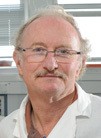
Israel, Rehovot - Moshe Oren received his Ph.D. in 1978. Upon completing post-doctoral training in Princeton University and SUNY-StonyBrook, he joined Weizmann Institute in 1981. His main area of research is cancer biology, with particular focus on the p53 tumor suppressor gene. Moshe Oren is married to Rachel, and is father to Yossi, Yael, Yaara and Yonathan and grandfather to Yair, Renana, Arbel, Dvir and Ayelet.
KEYWORDS: p53, Hippo signaling pathway, tumor immunology
Qiang Pan-Hammarström, MD, PhD, Karolinska Institutet, Sweden
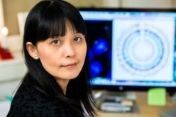 Qiang Pan-Hammarström is a Professor of Clinical Immunology at the Karolinska Institutet, an elected member of the Nobel Assembly at the Karolinska Institutet, an adjunct member of the Nobel Committee (2023), and an elected member of the Royal Swedish Academy of Sciences. Her education includes medical training at Sun Yat-Sen University (MD, 1993), research training at the Karolinska Institutet (PhD, 1999), and Harvard Medical School (postdoc, 2000), and leadership training at Harvard Business School (2019). Currently, she also serves as a guest professor at Tianjin Medical University Cancer Institute and Sun Yat-Sen Memorial Hospital. She has published more than 200 papers in the areas of immunodeficiency, cancer genomics, and COVID-19 and has trained 12 PhD students and 24 postdoctoral fellows. She is currently also an editorial board member of Journal of Clinical Immunology and Cancer Communications.
Qiang Pan-Hammarström is a Professor of Clinical Immunology at the Karolinska Institutet, an elected member of the Nobel Assembly at the Karolinska Institutet, an adjunct member of the Nobel Committee (2023), and an elected member of the Royal Swedish Academy of Sciences. Her education includes medical training at Sun Yat-Sen University (MD, 1993), research training at the Karolinska Institutet (PhD, 1999), and Harvard Medical School (postdoc, 2000), and leadership training at Harvard Business School (2019). Currently, she also serves as a guest professor at Tianjin Medical University Cancer Institute and Sun Yat-Sen Memorial Hospital. She has published more than 200 papers in the areas of immunodeficiency, cancer genomics, and COVID-19 and has trained 12 PhD students and 24 postdoctoral fellows. She is currently also an editorial board member of Journal of Clinical Immunology and Cancer Communications.
Marc Pellegrini, MB, BS, BSc, FRACP, PhD, FAHMS, Centenary Institute, Australia
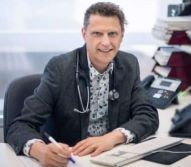 Sydney, Australia – Marc Pellegrini obtained his undergraduate degrees in medicine and science at the University of Melbourne. After completing his physician training in infectious disease he pursued a PhD at the Walter and Eliza Hall Institute with Prof. Andreas Strasser then postdoctoral work with Prof. Tak Mak in Toronto Canada. His research spans the fields of host cell death and immunity with a focus on host-pathogen dynamics. He investigates how the different modalities of programmed cell death promote and mitigate diseases caused by intracellular pathogens including HIV, HTLV-1, hepatitis B virus, SARS-CoV-2, Burkholderia and Pseudomonas ssp and Mycobacterium tuberculosis. His goal is to harness apoptosis as a strategy to eliminate intracellular pathogens. He is the Director of the Centenary Institute in Sydney, Australia.
Sydney, Australia – Marc Pellegrini obtained his undergraduate degrees in medicine and science at the University of Melbourne. After completing his physician training in infectious disease he pursued a PhD at the Walter and Eliza Hall Institute with Prof. Andreas Strasser then postdoctoral work with Prof. Tak Mak in Toronto Canada. His research spans the fields of host cell death and immunity with a focus on host-pathogen dynamics. He investigates how the different modalities of programmed cell death promote and mitigate diseases caused by intracellular pathogens including HIV, HTLV-1, hepatitis B virus, SARS-CoV-2, Burkholderia and Pseudomonas ssp and Mycobacterium tuberculosis. His goal is to harness apoptosis as a strategy to eliminate intracellular pathogens. He is the Director of the Centenary Institute in Sydney, Australia.
KEYWORDS: Programmed cell death, infectious diseases, intracellular pathogens
Mauro Piacentini, MSc, PhD, University of Rome "Tor Vergata", Italy
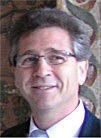
Italy, Rome - Dr Piacentini is a Full Professor at University of Rome "Tor Vergata", Rome, Italy. He is also President of the Biotechnology Program at the university, is on the Board of Directors for the European Cell Death Organization and is Basic Research Director at the National Institute for Infectious Diseases in Rome. Since 1993, he has been the Founder and an Editor of the journal Cell Death & Differentiation. He is a journal reviewer for other journals including Brain Research, Cancer Research, Cancer Cell, and Nature. Furthermore, Dr Piacentini has organized several international meetings including the 14th Euroconference on "Apoptosis or Programmed Cell Death". He has co-edited a book entitled "Methods in Enzymology: Programmed Cell Death". His research interest is to understand the molecular mechanisms regulating apoptosis and autophagy under both physiological and pathological conditions. In particular, he is interested in the pathogenesis of Huntington's disease with particular regard to the role of TG2 and mitochondria. He is also studying infectious diseases such as HIV and HCV. With autophagy, he is characterizing the role of Ambra1, a key component of the Beclin1 complex.
KEYWORDS: apoptosis; autophagy; HIV; HCV; Ambra1
David C Rubinsztein, BSc(Hons), PhD, MRCPath, FRCPath, University of Cambridge, UK
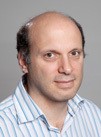
UK, Cambridge - David Rubinsztein did his medical training, BSc(Hons) and PhD at the University of Cape Town. He came to Cambridge in 1993 as the first Senior Registrar in the UK in Genetic Pathology and obtained his MRCPath and Certificate of Completion of Specialist Training in 1997 and FRCPath in 2005. When he came to Cambridge, he became interested in the biology of neurodegenerative diseases, particularly Huntington's disease and established a research group to investigate this area. In 1998, he was the first awardee of a Glaxo Wellcome Research Fellow, and subsequently was awarded a Wellcome Trust Senior Research Fellowship from 2002-2011. Since 2012, he has held a Wellcome Trust Principal Research Fellowship, the most senior of their personal research awards. He is Professor of Molecular Neurogenetics, an Honorary Consultant in Medical Genetics, and Deputy Director of the Cambridge Institute for Medical Research at the University of Cambridge.
David Rubinsztein has made important contributions to the understanding of the pathogenesis of Huntington's disease and related conditions, and towards developing rational therapeutic strategies for these conditions. He has identified FDA-approved drugs that may have benefit in these diseases, since he has demonstrated their efficacies and protective mechanisms in a range of cell and animal models. He has helped to illuminate the relevance of autophagy defects as a disease mechanism and autophagy upregulation as a possible therapeutic approach in various neurodegenerative diseases, and has contributed to the basic cell biology of this important catabolic process. He is a frequent speaker at international conferences and has published more than 300 papers, including recent studies in leading journals like Cell, Nature Cell Biology, and Molecular Cell.
KEYWORDS: Huntington’s disease, autophagy, neurodegeneration, protein misfolding
Paolo Salomoni, PhD, UCL Cancer Institute, UK
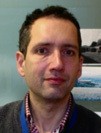
UK, London - Paolo Salomoni is at Samantha Dickson Brain Cancer Unit, UCL Cancer Institute, London, UK. Paolo Salomoni was appointed Brian Cross Professorial Research Associate at the UCL-Cancer Institute, Department of Cancer Biology in October 2009. He leads the Samantha Dickson Brain Cancer Unit, the first UK research centre fully dedicated to brain cancer research, funded by The Brain Tumour Charity (formerly known as Samantha Dickson Brain Tumour Trust). He is also part of the UCL Centre for Stem Cells and Regenerative Medicine and of UCL Neuroscience. Paolo started his PhD training at the Kimmel Cancer Center, Philadelphia, under the supervision of Bruno Calabretta. In 1999, he moved to the Memorial Sloan-Kettering Cancer Center, New York, in the laboratory led by Pier Paolo Pandolfi. After finishing his postdoctoral training at MSKCC in 2003, he moved to the Medical Research Council Unit in Leicester, where he was programme leader track and then programme leader.
His main focus is on molecular mechanisms underlying cell fate control in normal and neoplastic stem cells, and how alterations of these mechanisms contribute to cancer. In particular, we have investigated two main processes involved in tumourigenesis:
- alteration of chromatin function and the interchromatin space;
- metabolic deregulation. His work has several translational ramifications, as studies conducted in his laboratory have led to a number of Phase II clinical trials for the use of an metabolic drugs in cancer therapy.
KEYWORDS: nervous system tumour, PML, stress response, neurodegenerative disease, chromatin
Guy Salvesen, PhD, Sanford-Burnham, University of California, USA

USA, La Jolla - Guy Salvesen earned his Ph.D. in biochemistry from Cambridge University. He conducted postdoctoral research at the University of Georgia, Strangeways Laboratory and MRC Laboratory of Molecular Biology in Cambridge. In 1987 he was appointed Assistant Medical Research Professor at Duke University. Dr. Salvesen was recruited to Sanford-Burnham Medical Research Institute in 1996. He is Professor in the Program in Cell Death and Survival Networks, Dean of the Graduate Program in Biomedical Sciences at Sanford-Burnham, and Director of Scientific Training at Sanford-Burnham, and holds an Adjunct Professorship in Molecular Pathology at the University of California, San Diego. He is on the editorial board of several journals including Cell Death and Differentiation, Vice Chair for the Americas and Reviews Editor of the Biochemical Journal, and Co-founder of the International Proteolysis Society.
KEYWORDS: tumor microenvironment, cancer immunology, programmed cell death, cysteine and serine proteases
Fu-Dong Shi, MD, Beijing Tiantan Hospital, Capital Medical University; Tianjin Medical University General Hospital, China
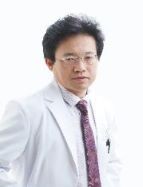
Beijing/Tianjin, China. Fu-Dong Shi is a Professor and Chairman, Chief Neurologist, at Center for Neuroimmunology, Beijing Tiantan Hospital, Capital Medical University, Beijing; and Department of Neurology, Tianjin Medical University General Hospital, Tianjin, China. He specializes in the management of patients with multiple sclerosis and related neuroinflammatory diseases. He studies neuroimmune interactions in the setting of neurological disorders; investigates novel immune therapies through conducting large scale clinical trials; discovers and validates biomarkers and drugs to diagnose and treat neuroinflammatory diseases. Fu-Dong Shi completed his clinical and research training in Peking Union Hospital, China, Karolinska Institute, Sweden, The Scripps Research Institute, California, USA, and Barrow Neurological Institute, Arizona, USA. He currently serves as Board Member of European Charcot Foundation; Chief of Neuroimmunology Section, Chinese Neurological Association. He has published 245 articles, acquired over 20 patents.
Key words: Neuroscience, Neurology, Immunology, Multiple Sclerosis, Stroke
Yufang Shi, PhD, Soochow University, Shanghai Institutes for Biological Sciences of Chinese Academy of Sciences, China
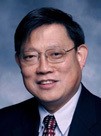
China, Shanghai and USA, New Jersey - Yufang Shi is Director and Professor of the Institute of Health Sciences, Shanghai Institutes for Biological Sciences of Chinese Academy of Sciences, and Soochow University. He received his Ph.D. in Immunology from University of Alberta in 1992. He worked under the supervision of Dr. Douglas Green. There he established the concept of activation-induced cell death (AICD) and found the critical role of c-myc in the regulation of T cell apoptosis. His early investigation provided the foundation of using rapamycin as an adjuvant for chemotherapy. In recent studies, his team has been investigating the mechanism of immunosuppression mediated by mesenchymal stem cells, a key research area for proper application of stem cells in clinical settings. Dr. Shi's group is currently working on the following aspects:
- Understanding how immunosuppression is mediated by mesenchymal stem cells;
- Tumor stroma and tumor immunology;
- Molecular mechanisms of activation-induced cell death in T cell subpopulations.
Dr. Shi has authored over 150 scientific papers including those in Nature, Science, Nature Medicine, Nature Immunology, Immunity, Journal of Experimental Medicine and Cell Stem Cell. Dr. Shi was an Associate Editor of The Journal of Immunology from 1999 to 2003 and is currently an Editor-in-Chief of Cell Death & Disease, a Receiving Editor of Oncogene, and Editorial Board Members on several other journals including Journal of Biological Chemistry, Journal of Molecular and Cell Biology, Stem Cells and Translational Medicine, Cellular and Molecular Immunology, and Cell Death & Differentiation.
KEYWORDS: Apoptosis in lymphocytes; immune regulation; psychoneuroimmunology; bone-lymphocyte connection
John Silke, LLB, BA (Hons) Cantab, PhD, Walter and Eliza Hall Institute, Australia

Australia, Melbourne. John Silke completed a law degree in King's College London, before seeing the error of his ways and completing a second degree in Biochemistry at Churchill College, Cambridge (1992). He completed a PhD in Zürich (1997), Switzerland under Prof. Walter Schaffner, looking at the role of DNA methylation in the regulation of transcription. A Swiss fellowship allowed John to go to Australia to work on cell death mechanisms as a post-doc for Dr. David Vaux in the WEHI (1997-2005). After a five year stint running a lab in La Trobe University, he returned to the WEHI (2011) where his lab focuses on the programmed cell death pathways; apoptosis and necroptosis. He has collaborated with several pharmaceutical companies and is a strong advocate and proponent of using small drug like molecules to complement genetic analyses to investigate cell death pathways involved in regulating inflammation. In particular he is interested in the Inhibitor of APoptosis proteins and their ability to regulate signalling cascades involving RIP Kinases.
KEYWORDS: apoptosis, necroptosis, tumor necrosis factor, E3 ligases, RIP kinases
Hans-Uwe Simon, MD, PhD, University of Bern, Switzerland
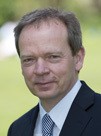
Switzerland, Bern - Simon Hans-Uwe, is Professor of Pharmacology and since 2000, has been Director of the Department of Pharmacology, University of Bern in Switzerland. After obtaining a doctoral thesis, he specialized in Clinical Immunology, at the University of Jena, Germany. His Postdoc (1990-92) was completed at the Mount Sinai and General Hospitals, University of Toronto, Canada. Professor Hans-Uwe became a Principal Investigator and Deputy Director (1992-2000) at the Swiss Institute of Allergy and Asthma Research, University of Zurich, Davos, Switzerland, with "Habilitation" in Experimental Immunology (1996). He also obtained a Doctoral thesis (Ph.D. 1996-2001) at the Department of Pharmacology, Hebrew University of Jerusalem, Israel. Research interests include:
- Immunopharmacology;
- Role of apoptosis and autophagy in inflammatory diseases and cancer.
Among other academic and administrative services, he served as President of the Swiss Society of Pharmacology and Toxicology (SSPT; 2004-2007), President of the Swiss Society of Experimental Pharmacology (SSEP; 2005-2008), President of the European Cell Death Society (ECDO; 2007-2009), and President of the Union of the Swiss Societies for Experimental Biology (USSBE; 2007-2010). He is the Editor-in-Chief of Allergy, the European Journal of Allergy and Clinical Immunology.
KEYWORDS: Immunopharmacology; apoptosis; autophagy; neutrophils extracellular traps; eosinophils
Andreas Strasser, MSc, PhD, FAA, Walter and Eliza Hall Institute, Australia
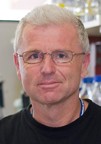
Australia, Melbourne - Joint Head of the Molecular Genetics of Cancer Division at The Walter and Eliza Hall Institute of Medical Research in Melbourne. His research is focused on programmed cell death and how defects in this process cause cancer or autoimmune disease and affect the response of tumour cells to anti-cancer therapy. Key discoveries have been that abnormalities in cell death control can cause cancer or autoimmune disease; that Bcl-2 antagonizes multiple pathways to cell death; that Bcl-2 collaborates with c-myc in tumorigenesis; that Bcl-2 inhibits the death of lymphocytes that fail to receive a signal through cytokine or antigen receptors; that Bcl-2 and death receptors regulate distinct pathways to apoptosis; that DNA damage can induce apoptosis in lymphocytes via a pathway that is independent of p53 but can be blocked by Bcl-2; the discovery of pro-apoptotic BH3-only proteins Bim and Bmf; that BH3-only proteins are essential for initiation of programmed cell death and stress-induced apoptosis; that Bim is required for negative selection of autoreactive thymocytes and mature T cells; that the BH3-only proteins Puma and Noxa are essential for DNA damage-induced apoptosis mediated by the tumour suppressor p53. Current efforts include determination of which anti-apoptotic proteins are essential for the development and, more important for clinical translation, the sustained growth of different cancer types. This includes efforts to develop antagonists of pro-survival proteins for cancer therapy.
KEYWORDS: apoptosis, cancer, chemoresistance, hematology
Qiang Sun, PhD, Beijing Institute of Biotechnology, Chinese Academy of Medical Sciences, China
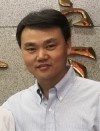 China, Beijing – Qiang Sun obtained his PhD in Molecular Biology and Biochemistry at the Forth Medical University, Xi’an, under the supervision of Professor Hua Han. Then, he moved to Beijing Institute of Biotechnology where he systemically investigated the mutual regulation between TGF-beta signaling and miRNAs. During that period, he independently discovered and investigated cell-in-cell structures before postdoctoral research with Dr. Michael Overholtzer in MSKCC. His postdoctoral work identified entosis as a mammalian mechanism of cell competition that promotes clonal selection and tumor evolution. He is currently a full professor of cell biology in Beijing Institute of Biotechnology, and director of the Research unit of Cell Death Mechanism, Chinese Academy of Medical Sciences. His lab is dedicated to basic and translational studies related to cell death and diseases, in particular those involving cell-in-cell formation homotypically among tumor cells, and/or heterotypically between tumor and immune cells.
China, Beijing – Qiang Sun obtained his PhD in Molecular Biology and Biochemistry at the Forth Medical University, Xi’an, under the supervision of Professor Hua Han. Then, he moved to Beijing Institute of Biotechnology where he systemically investigated the mutual regulation between TGF-beta signaling and miRNAs. During that period, he independently discovered and investigated cell-in-cell structures before postdoctoral research with Dr. Michael Overholtzer in MSKCC. His postdoctoral work identified entosis as a mammalian mechanism of cell competition that promotes clonal selection and tumor evolution. He is currently a full professor of cell biology in Beijing Institute of Biotechnology, and director of the Research unit of Cell Death Mechanism, Chinese Academy of Medical Sciences. His lab is dedicated to basic and translational studies related to cell death and diseases, in particular those involving cell-in-cell formation homotypically among tumor cells, and/or heterotypically between tumor and immune cells.
KEYWORDS: cell-in-cell, entosis, cell cannibalism, cell fusion, aneuploidy, mitotic surveillance, cancer, virological disease
David Vaux, MD, PhD, The Walter and Eliza Hall Institute, Australia
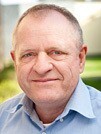
Australia, Melbourne - David Vaux is currently at The Walter and Eliza Hall Institute (WEHI), in Melbourne, Australia. He graduated in medicine from the University of Melbourne, before completing a PhD at WEHI, and a post-doc at Stanford. He is best known for his work on Bcl-2, having found in 1988 that it acted, unlike other oncogenes known at the time, to inhibit cell death, rather than promoting cell proliferation. By showing human Bcl-2 could inhibit developmental cell death in C. elegans, he showed that apoptosis and programmed cell death were the same, evolutionarily conserved process. He was among those who first identified the mammalian inhibitor of apoptosis (IAP) proteins, and their mammalian antagonists, such as Smac/Diablo. He is currently on the Scientific Advisory Board of TetraLogic Pharmaceuticals.
KEYWORDS: Bcl-2, IAP protein family, apoptosis
Andreas Villunger, BSc, MSc, PhD, Medical University Innsbruck, Austria

Austria, Innsbruck - Professor Andreas Villunger conducted his undergraduate studies in Biology in Salzburg and Innsbruck, Austria, and obtained his Master and PhD degrees for research on cytokine signalling in multiple myeloma. After post-doctoral work in the Ras/PKC signalling field, Andreas moved to the Walter and Eliza Hall Institute, Melbourne, Australia, to conduct research on the role of Bcl-2 family proteins in lymphocyte development and transformation. After his return to Austria in 2003, he continued to work on Bcl-2 family proteins in the immune system and started to explore the role of caspases in tumor suppression. He has been awarded the prestigious START Prize by the Austrian Science Fund and the Novartis Prize for Medical Research. In 2009, he was appointed full professor at the Medical University Innsbruck and is head of the Division of Developmental Immunology.
KEYWORDS: apoptosis, Bcl-2, PIDD1
Karen Vousden, PhD, CBE, Cancer Research UK Beatson Institute, UK
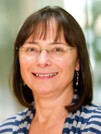
Professor Karen Vousden is the Director of the Cancer Research UK Beatson Institute in Glasgow. The Beatson Institute carries out a program of world-class science directed at understanding key aspects of cancer cell behavior, and provides a state of the art facility where basic and clinical scientists can work together to translate these discoveries into new therapies and diagnostic/prognostic tools to help cancer patients. Karen's own research focuses on the regulation and function of the tumour suppressor protein p53. Karen received her Ph.D. in Genetics from the University of London, followed by postdoctoral fellowships with Chris Marshall at the Institute of Cancer Research in London and Douglas Lowy at the National Cancer Institute in the USA.
After joining the Ludwig Institute for Cancer Research in London moved back to the NCI in 1995 where she was Chief of the Regulation of Cell Growth Laboratory, before taking up her current position in 2002. Karen has been elected to the Royal Society, the Royal Society of Edinburgh, EMBO, the Academy of Medical Sciences and the European Academy of Sciences, and received honorary DScs from the Universities of London and Strathclyde. She was awarded the Tenovus Gold Medal in 1998, the Sir Frederick Gowland Hopkins Medal in 2008, the Royal Medal from the Royal Society of Edinburgh in 2009 and was honoured as Commander of the British Empire in 2010. She is presently on the Board of Directors of the AACR.
KEYWORDS: p53, metabolism
Laurence Zitvogel, MD, PhD, Institut National de la Santé et Recherche Médicale, France

France, Paris - Professor Laurence Zitvogel, MD (clinical oncology), PhD (tumor immunology), PU-PH Faculty Paris Sud, University Paris XI (Clinical Biology), graduated in Medical Oncology from the School of Medicine of the University of Paris in 1992. She started her scientific career when she was at the University of Pittsburgh in the USA in Michael Lotze’s laboratory. She became Research Director at Institut National de la Santé et Recherche Médicale U1015, in a laboratory located at Institut Gustave Roussy, a large cancer Center in Villejuif/France and the Head of the Center for Clinical Investigations CICBT 507 for vaccine developments at Villejuif. She has been actively contributing to the field of cancer immunology and immunotherapy, and she brought together basic and translational research, including the design of cancer therapies through combined animal studies and Phase I patient trials. Her expertise is mainly dendritic cell and innate effector biology and relevance during tumour development as well as exosome-based vaccine designs. She pioneered the concept of immunogenic cell death and showed that chemotherapy, radiotherapy and inhibitors of tyrosine kinase mediate their tumoricidal activity, at least partly through the immune system. She is currently working on the mode of action of immune checkpoint blockers.
KEYWORDS: cancer immunology, immunotherapy, clinical trials, dendritic cells, immunogenic cell death, clinical oncology
